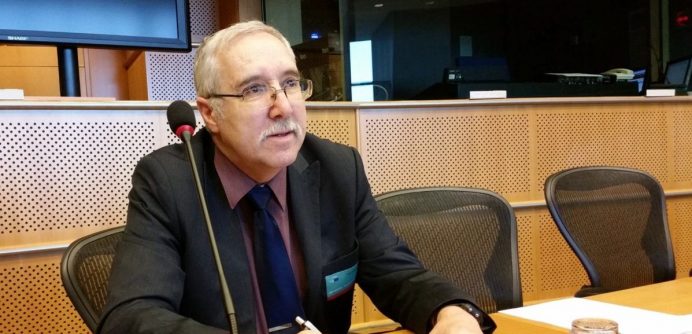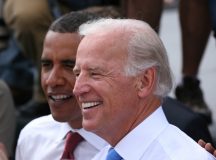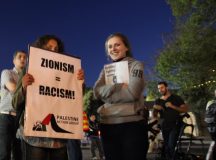The Biden administration has decided to return to the UN Human Rights Council in order to reform it and to call time on its notorious anti-Israel bias. Gerald M. Steinberg explains that while the structural and political obstacles to those goals are formidable, some improvements might be possible if the US prioritises objectives, which should include the removal of Item Seven from the permanent agenda, acts consistently and robustly in their pursuit, is willing to publicly criticise key officials, withhold funds, and cooperate with like-minded states. Having rejoined, a failure to make that effort would undermine the future credibility of the liberal internationalist approach to foreign policy and the United Nations.
The decision of the Biden Administration to bring the United States back into the UN Human Rights Council (HRC), first as an observer until the end of the year, and presumably as a member beginning in 2022, was never in doubt. Liberal internationalism has been at the core of the Democrat’s foreign policy since the end of the Second World War, based on the stability and cooperation presumably fostered through the United Nations and similar institutions. In contrast, Republicans, particularly since Reagan (1981-4), view these frameworks as inherently hostile to American interests, and sources of propaganda. In 2006, George W. Bush opted out; three years later, Obama walked back in, followed in 2018 by another exit led by Secretary of State Pompeo and UN ambassador Nikki Haley. Given this pattern, Biden’s return was a foregone conclusion.
In making the announcement, Secretary of State Blinken acknowledged that the HRC ‘is a flawed body, in need of reform to its agenda, membership, and focus, including its disproportionate focus on Israel.’ By returning to Geneva and participating in the process, he argued, the US will be able to exert a positive influence. According to Blinken, ‘The best way to improve the Council, so it can achieve its potential, is through robust and principled US leadership.’
In contrast, the evidence provides little ground for optimism. In 2009, Obama and his Secretary of State, Hillary Clinton, expressed similar hopes, which were quickly and decisively proven to be unfounded. As a Council member, the US was unable to steer the UN framework into confronting, or even addressing the horrendous human rights abuses in Syria, Venezuela, China and elsewhere.
In parallel, the anti-Israel demonisation exceeded even the previously absurd levels. When the US, and perhaps a few other democracies voted against the latest anti-Israel resolution, it made no difference in the outcome. And when US representatives raised objections after antisemitic slurs or the use of the term ‘Zionist entity’ from an Iranian or Syrian official, nothing happened and the speeches resumed.
Built-in Bias
The structure of the UNHRC is largely impervious to change, reflecting the nature of the UN with its 193 member states, and the built-in majority for autocrats, dictatorships – Russia, China, Cuba and Venezuela are among the current members. 56 UN states belong to and generally vote with the Organisation of Islamic Countries, including all things that are anti-Israel. Of the five regional groupings which determine the Council’s 47 members (elected for three-year terms), the two largest (African and Asia-Pacific), with a combined 26 seats, follow the OIC position. As a result, agendas and appointments, including the Commissioner and the people who write or oversee the reports, must pass the anti-Israel litmus test. US membership on the Council, as a member of the Western Europe and Others group (WEOG), which has seven seats, will not change this.
The bias is also built into the permanent agenda, specifically Item Seven on ‘the Human rights situation in Palestine and other occupied Arab territories,’ ensuring that every quarterly session will include attacks against Israel. No other single issue, conflict or country has its own permanent agenda item, and it is under this framework that the majority of anti-Israel reports and resolutions are adopted. Here again, the ability of the US (joined perhaps by a few courageous allies, depending on the Council’s membership in a particular year) to change this is essentially non-existent.
The absurdly disproportionate number of resolutions and reports targeting Israel reflects the built in structure of the UNHRC. UN Watch keeps a running tab, and reports that from 2006 through 2020, out of a total of 217 resolutions, 90 targeted Israel, compared to 10 on Iran, 13 on North Korea, two on Venezuela, and, of course, none on China.
The lack of allies for change, particularly among western Europeans, is another obstacle. In most anti-Israel votes, the best that the EU representatives (currently including Denmark, France, Germany, Italy, the Czech Republic, and the Netherlands, among others) can agree on is to abstain, which has very little significance.
The structural factors are also reflected in the political biases of many of the Council officials and employees in the Secretariat. As noted, in order to be elected, candidates must be ideologically acceptable to the majority of UN member states, as in the case of the current High Commissioner, Michelle Bachelet. Similarly, the staff members who write and oversee the reports and manage the Council’s agenda have a clear history of bias, particularly in promoting the Palestinian cause.
Powerful NGOs Reinforce the Bias
In this context, numerous non-governmental organisations (NGOs) with very large budgets, official UN recognition and claiming to promote human rights are active in amplifying the HRC’s biased agenda. Human Rights Watch, Amnesty International, and the Paris-based Fédération Internationale pour les Droits Humains (FIDH), keep permanent delegations in Geneva, and with numerous smaller groups, including Palestinians and Israelis, are very active and visible. They take the floor in the sessions, hold side events and press conferences, get privileged access to the High Commissioner, members of the secretariat, and delegates, distribute propaganda materials, and are actively involved in writing the resolutions and reports that inevitably condemn Israel. Many of the officials that control these NGOs use their positions to promote their post-colonial ideological positions, which blames the democratic and capitalist West (primarily the US) for the world’s ills, and exempts the ‘victims of colonialism’ from accountability or responsibility. Under this rubric, Israel is a favourite target. These ideologues routinely move back and forth between NGO jobs and staff positions in the HRC framework.
The central role of the unaccountable NGO network in furthering radical agendas was illustrated at the 2001 World Conference Against Racism, held in Durban, South Africa, held under the auspices of the Commission on Human Rights, as it was known at the time, and led by the High Commissioner Mary Robinson. The event was characterised by an intense anti-Israel and antisemitic atmosphere as well as content, and the US demonstrably walked out of the diplomatic forum in protest to the anti-Israel content of that framework, leading to some revisions in the final text. In contrast, the Americans had no influence on the NGO forum, in which 5000 officials from 1500 organisations participated, including, HRW, Amnesty, and FIDH. ‘Zionists’ were prevented from speaking, and the final declaration called for ‘the complete international isolation of Israel as an apartheid state,’ guilty of war crimes, ethnic cleaning, racism and genocide. The NGO Forum also launched the BDS and lawfare campaigns.
The non-reform of the UN framework that took place in 2006 further highlights the influence of the NGOs. Following intense criticism of the existing Commission on Human Rights, including the dominant role of the worst violators, a new framework known as the Human Rights Council was launched, but with little or no substantive difference. The notorious Permanent Agenda Item Seven was retained, in part reflecting the intense lobbying of Human Rights Watch and the other organisations. The US sought to influence the reform process, but without success. As noted at the time by Representative Chris Smith, chair of the subcommittee with oversight responsibility on human rights issues, ‘the new human rights machinery remains broken, in need of serious repair and fundamental reform. The Human Rights Council has, thus far, continued the credibility deficit of its predecessor.’
As noted, after the 2006 non-reform, the Bush Administration opted out of the new Council, but in 2009, Obama and Clinton rejoined, declaring their intention to ‘make a difference’. Indeed, in one of his first decisions on UN-issues, Obama decided that the US would not participate in the ‘Second Durban Conference’ (the follow up meeting is usually held a few years after a major event), which actually took place in Geneva. This event (there was no NGO Forum) was far less significant than the original one, and was marked by a major walkout when Iranian President Ahmadinijad spoke. Whether the absence of the US and other countries (including, Italy and the Czech Republic, made a difference is unclear.
In the other aspects of the UNHRC agenda, the routine, including the attacks against Israel, was unchanged. In the wake of the first Gaza war, the Council adopted an entirely one-sided resolution and established an investigative commission led by Richard Goldstone. His report, issued in September 2009, consisted of 500 pages of unverified allegations of ‘war crimes’, ‘crimes against humanity’ and other accusations, largely copied from the NGOs by the Commission’s staff, and aimed at initiating proceedings against Israel in the International Criminal Court (the core lawfare objective of the Durban NGO Forum). The US stated its opposition to the Goldstone report and voted against its adoption in the UNHRC, but had no impact. (In 2011, after being confronted with numerous false claims in his report, Goldstone issued a retraction of sorts, acknowledging that ‘if I had known then what I know now’, the text would have been very different.) These events, with a different cast of characters, were repeated after the 2014 Gaza war, and again in 2019, with the fundamentally biased report produced by the ‘UN Independent Commission of Inquiry on Protests in Gaza.’
The ‘Special Rapporteur on the situation of human rights in the Palestinian Territory occupied since 1967’ is another core absurdity in the UN anti-Israel machine that is impervious to change. The position was created in 1993 and was left unchanged in the 2006 non-reform. Its mandate is ‘To investigate Israel’s violations of the principles and bases of international law… in the Palestinian territories occupied by Israel since 1967…’ While the mandates of other country-focused Special Rapporteurs are regularly reviewed, with some ended and others begun, the ‘Palestine’ mandate is set in concrete.
The individuals appointed to this position are well-known anti-Israel activists, as in the case of John Dugard (2001-2009), Richard Falk (2008 – 2014) and the current Rapporteur, Michael Lynk. Falk is also a ‘9/11 truther’ (a believer in conspiracy theories claiming the US staged the 2001 attacks) and although Lynk is from Canada, the Canadian government strongly criticised his appointment. All three worked closely with the NGO network and vice versa. Falk was a member of HRW’s board (until the embarrassment forced him out in 2012). And Lynk is a frequent speaker at events featuring BDS activists and sponsored by NGOs that promote the Palestinian narrative. Lynk dismisses Israel’s security concerns and ignores the terror victims, claiming that Hamas and Hezbollah pose ‘no real threat to Israel.’ And he praised a member of the Popular Front for the Liberation of Palestine (PFLP) terrorist organisation as a talented writer and poet.
The UNHRC publication of a BDS blacklist of 112 primarily Jewish-owned companies (officially described as a ‘database of business enterprises’) in February 2020 exemplifies the cumulative impact of the structural bias, and the great difficulty, and, in most cases, the impossibility of effecting change, including for the Americans. The process was launched in 2016, under UNHRC Resolution 31/36, and authorised the Office of the High Commissioner to create a discriminatory blacklist of entities allegedly conducting activities in areas over the 1949 Armistice lines. 32 member states supported the resolution, including Russia, China and Venezuela, and there were 15 abstentions, including the Europeans. As in the other examples, here as well, the objective was to promote the strategy adopted in the NGO Forum of the 2001 Durban conference, and the NGO network lobbied intensely for its publication and provided much of the content. The Obama Administration expressed its strong opposition to the resolution, but had no influence on the outcome.
The absurdly disproportionate number of UNHRC resolutions and reports alleging Israeli ‘war crimes’ and other violations have also been instrumental in setting the stage for the International Criminal Court prosecutor’s decision to initiate an investigation of Israel.
Alternative Policy Options
Within the limited options, and remaining committed to liberal international institutionalism, what actions might the US take to address the flaws highlighted by Blinken? To what degree could the Biden administration leverage the increased legitimacy they bring by rejoining the UNHRC in order to influence the agenda, appointments and procedures. These long-overdue changes include removing Permanent Item Seven, ending the mandate of the Special Rapporteur on the ‘situation in Palestine’, and reversing the BDS ‘database’ project, these would mark substantial improvements.
At the same time, the American announcement of the unconditional return to Geneva was criticised for rushing into this commitment without first establishing conditions and ‘laying out its own agenda for change’, thereby squandering its leverage. However, until 2022 when new members are elected, the US remains an observer, and before formally rejoining the Council, there is another opportunity.
To establish its credibility and demonstrate that the emphasis on reform goes beyond words that are quickly forgotten, the US can use its financial contributions as additional leverage. This could take the form of denying funds for the most egregious examples in which the Council, Secretariat and Office of the High Commissioner Michelle Bachelet exploit human rights for political objectives, including the targeting of Israel.
The policy objective of reforming the UNHRC in order to address its substantial flaws is not restricted to the US. British government officials have also spoken of the need for change, and, following Brexit, London is no longer limited by the EU consensus process, which is particularly cumbersome in the context of international institutions such as the UN. Other allies in this effort include Australia, Canada (although probably not in a leadership role under the Trudeau government), and potentially other countries willing to withstand pressure from the Palestinians and their allies.
In a few instances, small positive changes have been made through a combination of pressure (leverage) and persuasion. For example, in 2012, when the Israeli government suspended relations with the HRC and the Office of the High Commissioner, and declared that it would not cooperate in the Universal Periodic Review (UPR) process established in 2006, citing systematic bias and discrimination, this was perceived as a significant threat to the Council’s credibility. (No other country had threatened this, and the fear was that the Israeli boycott would create a precedent.) In negotiations on returning to the UPR process, Israel demanded the removal of Item Seven and acceptance as a full member of the Western Europe and Others Group (WEOG). A compromise was reached in which the second demand was accepted, and the other members of WEOG agreed to boycott Item Seven sessions. Israel then participated in the UPR process, and the ambassador declared: ‘We have come to the UPR out of respect, but we demand full respect, full equality, and an end to the unfair treatment of Israel.’
Should they choose to do so, Blinken and the top foreign policy officials of the Biden administration, including the President, will be able to exercise significant pressure for reform, although, as noted, the structural and political obstacles are formidable. By prioritising the objectives, acting consistently and ‘robustly’ to pursue them, including public criticism of key officials and withholding funds, and cooperating with like-minded states, some improvement might be possible.
At the same time, pressure on the HRC or push-back against the anti-western and anti-Israel agendas, such as Item Seven or the BDS database, will be met with condemnations from powerful NGOs such as Human Rights Watch and Amnesty International. The counter-attacks against reform will be echoed by progressive Democratic members of Congress and probably, some Administration officials more hostile to Israel.
Beyond the specifics, the Human Rights Council is a litmus test for the future credibility of the liberal internationalist approach to Democratic foreign policy in general, and support for the United Nations, in particular. Republicans have long targeted the UN, seeking to cut off all funding, and citing the human rights frameworks as examples of corruption, waste, and opposition to American interests. During the Trump presidency, the budgetary allocations to UN agencies were reduced significantly. If, in four or eight years, the results of the HRC reform efforts are meagre or non-existent, and the cynical exploitation of human rights continues, and if the Republicans retake the Senate or the White House, the opposition to liberal internationalism and related institutions will grow.





































